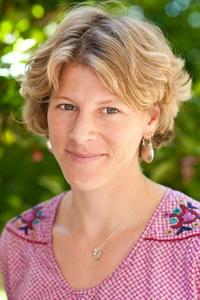Every decision taken by governments, companies – and individuals – has an impact. People do not always have a choice, often because of cost. But these social choices are critical.
The world is already at 1.1C and, consequently, along with steep reductions in greenhouse gas emissions that cause global warming, we must figure out how to adjust to the changes caused by the warming. This includes more frequent and intense weather events, changes in season dynamics, and impacts on ecosystems that have consequences for human life (so-called adaptation). This latter action is the focus of the IPCC’s Working Group II report on "Impacts, Adaptation and Vulnerability".

Dr Lisa Schipper
Today’s IPCC report contains chapters on food and fibre, water, coastal ecosystems/oceans, ecosystems. There are regional chapters as well. But the chapter for which I am the co-ordinating lead author - Climate Resilient Development Pathways - draws on these and looks at the prospects of achieving Climate Resilient Development. Right now, it’s not a good outlook.
Climate change is not going to be solved with technical solutions. Instead, it needs integrated efforts across all of society and around the whole world.
The IPCC’s report last August (Working Group I: The Physical Science Basis) gave an unequivocal warning: we are going to reach 1.5 degrees warming soon.
We have a brief window of opportunity to act in the face of advancing climate change. There is very little wriggle room. This key problem of equity is a major stumbling block we have identified. Concerted action is needed now.
Excerpt from Dr Lisa Schipper's Too many words, too little action: climate justice is essential to limit climate change. Read the full article here.
Dr Lisa Schipper, Environmental Social Science Research Fellow at the University of Oxford and lead author of Chapter 18: Climate resilient development pathways in today’s IPCC report is available for interview on the findings.